9 months on and pregnant in Gaza
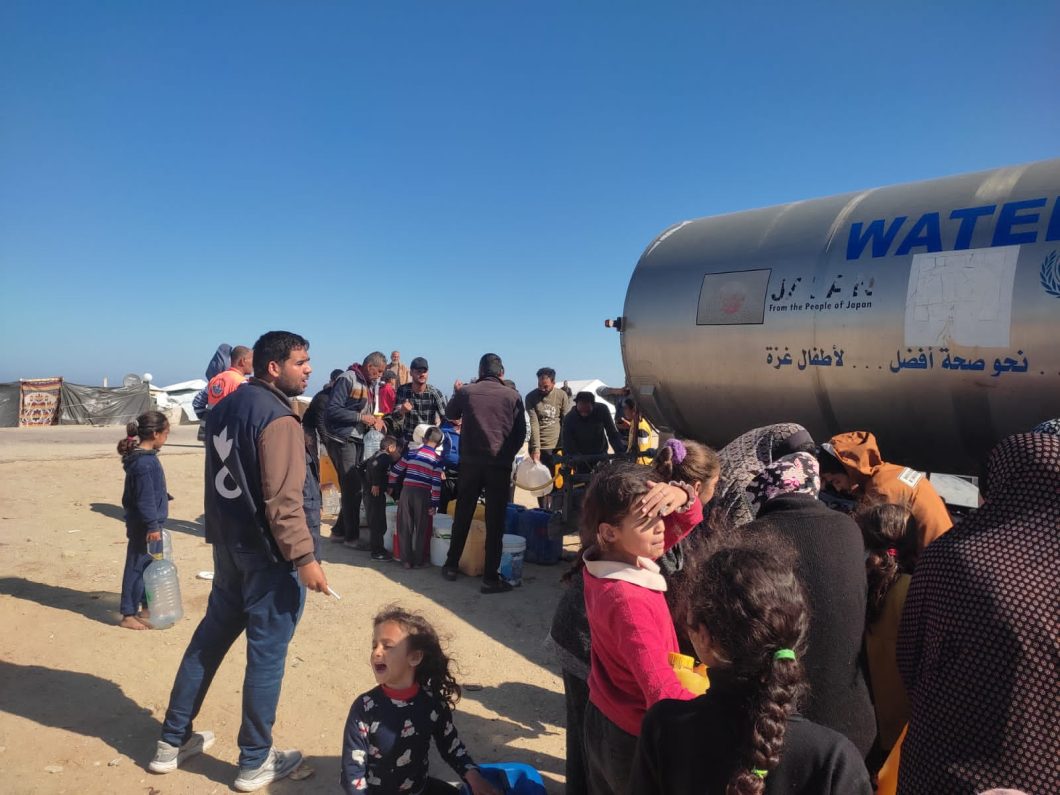
On the day that war broke out in Gaza, Aisha discovered she was pregnant with her first child. Now, 9 months later, the conflict continues. Read her story.
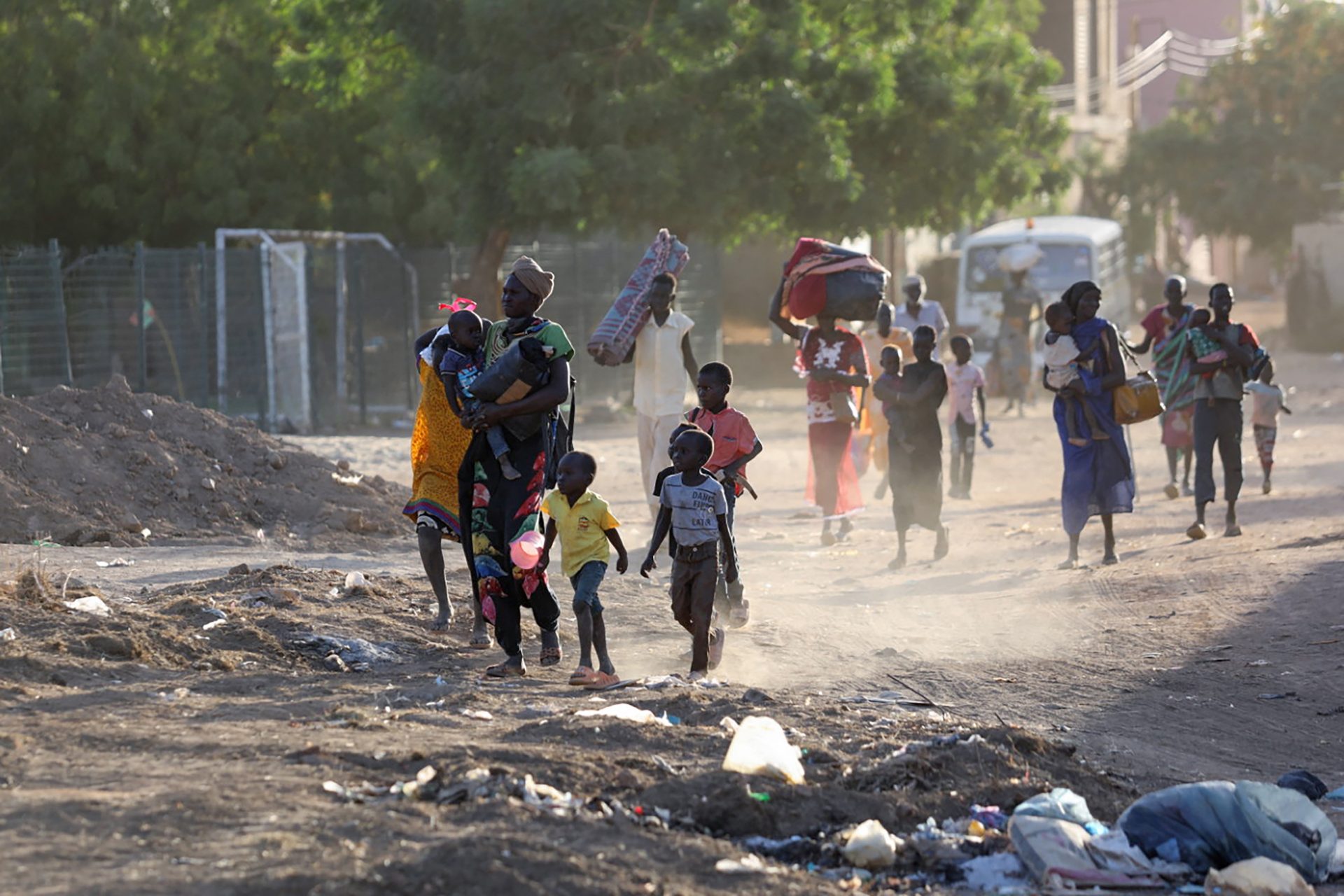
Armed conflict is the biggest single cause of hunger in the world today. In the worst-case scenarios, it can result in starvation.
War, violence and conflict have been the number one driver of acute food insecurity since 2017.
158 million people suffer from conflict-induced hunger. No other cause of hunger comes close. War and conflict result in life-threatening hunger. And in the worst-case scenarios, starvation.

Conflict destroys crops, markets and water supplies. It makes humanitarian access difficult and sometimes impossible. It prevents children and expectant parents from getting the essential nutrition they need. And it works the other way too – when food is scarce it can lead to increased violence.
Those who survive conflict will have their lives blighted. Many will have their future health, wealth and wellbeing compromised. As a result, they’re more likely to raise their children in poverty and hunger.
And the ongoing global economic crisis is only making the situation worse. Many countries are struggling with high debt levels, which in turn prevents governments from protecting their most vulnerable communities.
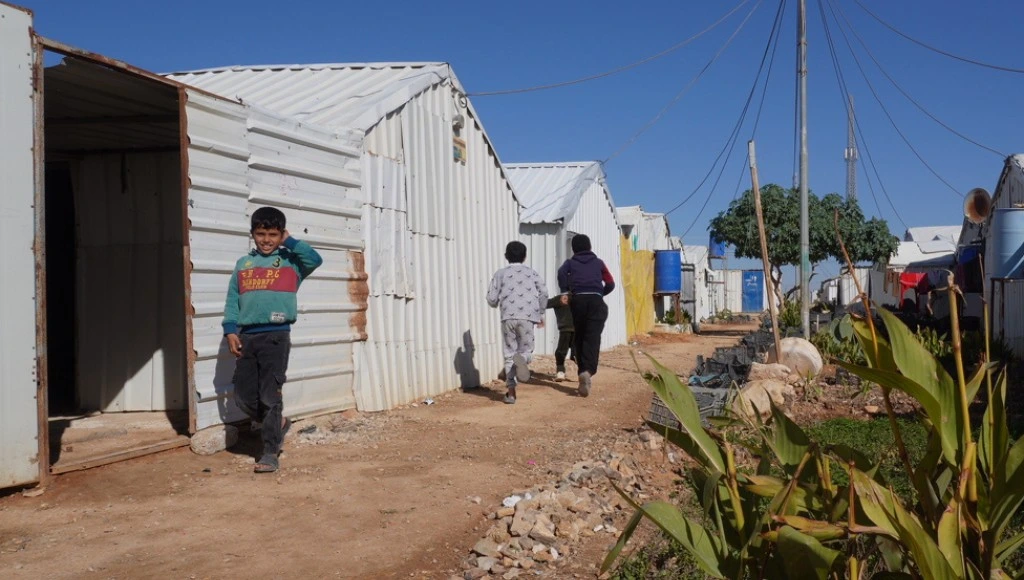
Right now, conflict is causing acute levels of food insecurity in Gaza, Sudan and Yemen.
In Mali, the Democratic Republic of the Congo and Somalia the withdrawal of UN peacekeeping missions is expected to create security vacuums that can be exploited by armed groups.
In Ethiopia conflict is affecting agricultural livelihoods. And intensified conflicts in Myanmar and Haiti is driving further displacement and restricting access to food and assistance.
In 2023, 134.5 million people across 20 countries and territories were facing war that caused hunger.
One in 69 people worldwide are forcibly displaced – this is more than double the number of people a decade ago.
Children account for 40% of all forcibly displaced people worldwide.
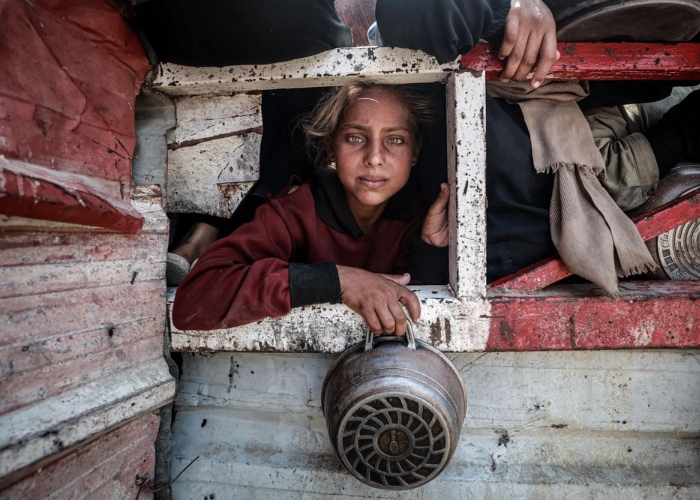
Conflict in Gaza has destroyed homes, water systems and hospitals. Millions are hungry and mass starvation is spreading. We're still in Gaza helping with whatever resources we have. You can help us reach more children and families with emergency aid by donating now.

On the day that war broke out in Gaza, Aisha discovered she was pregnant with her first child. Now, 9 months later, the conflict continues. Read her story.

Action Against Hunger’s Communications Officer in Yemen, Nada al-Saqaf, shares her story of what life has been in Yemen, before and during the seven-year conflict.
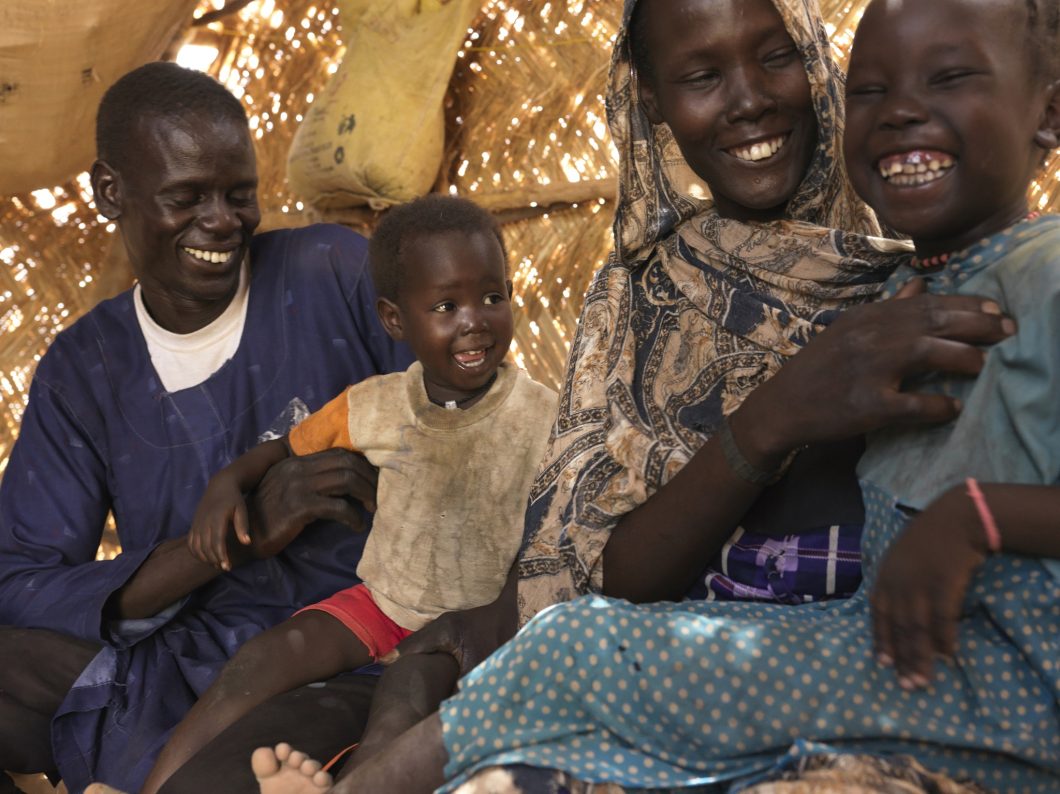
Civil war continues to devastate communities in Sudan – causing one of the largest refugee and hunger crises in the world. Forced to flee, many people become refugees in South Sudan.
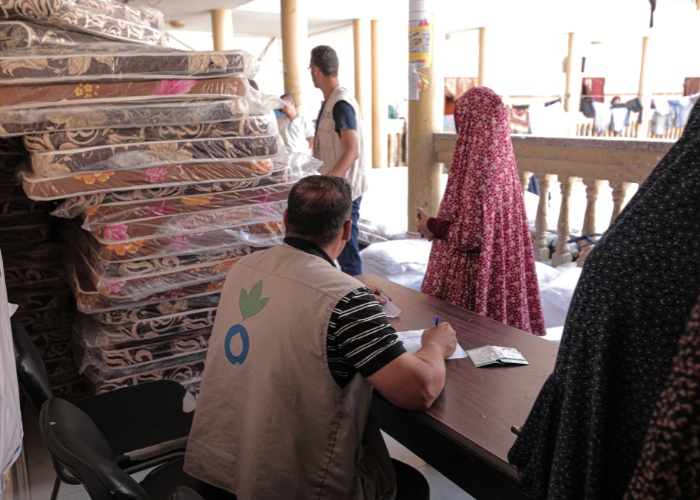
Collaborating with other organisations is vital when delivering humanitarian aid in conflict zones.
When a major crisis hits, we link with other UK charities specialising in humanitarian aid. We’re a member of the Disasters Emergency Committee (DEC), raising funds that are shared out between the 15 members of the network.
We’re also part of the Start Network, a network of more than 40 aid agencies. They help coordinate the efforts of agencies on the ground, sharing information, helping us all to respond early and quickly to emergencies together.
The Start Fundalso provides rapid financing that allows us to respond to the many humanitarian crises.

Since the conflict in Ukraine started, over 3 million people have fled into neighbouring Moldova, Poland and Romania. Hear from Ukrainian refugees who met our teams in Poland.
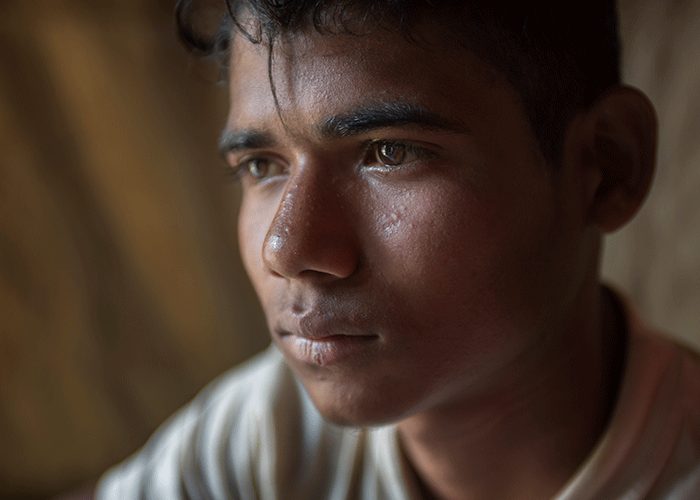
Since August 2017, worsening violence in Rakhine State, Myanmar, has forced more than 650,000 Rohingya refugees to flee to Bangladesh.
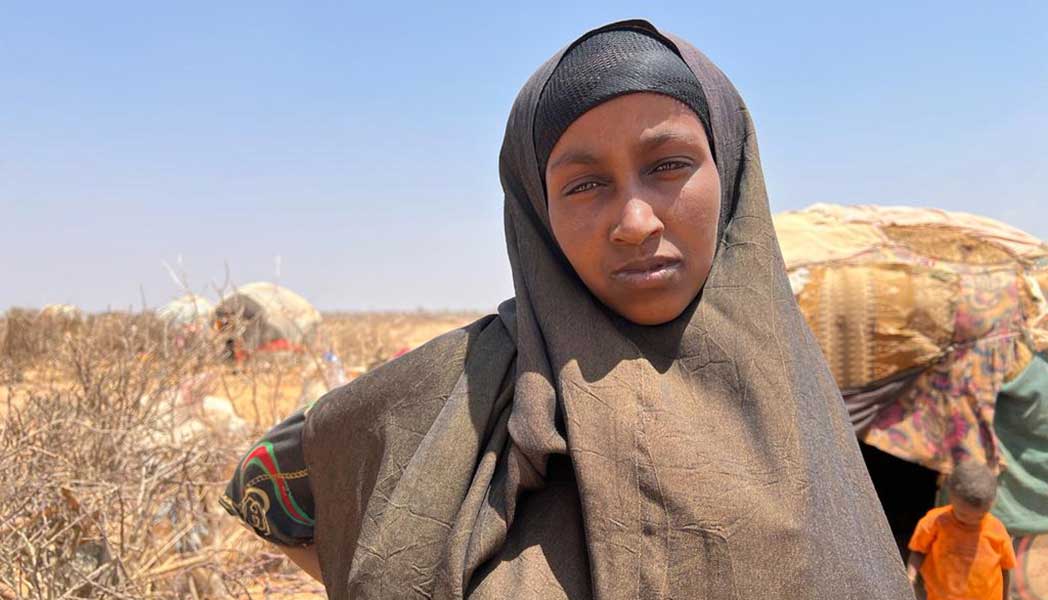
Like many other countries across east Africa, Somalia is on the brink of famine. Meet mums Mumina and Aftin who share their story of how they've been affected by the hunger crisis.
Intentionally starving civilians, destroying hospitals, houses and roads and stopping people getting aid are war crimes. In 2018, our advocacy efforts contributed to the adoption of UN Security Council Resolution 2417.
Resolution 2417 recognises the link between conflict and hunger and condemns starvation as a weapon of war. We’re now campaigning to ensure it is upheld.
The resolution makes it clear that food security is a human right and that governments will be held responsible for their actions when they contravene those rights.
But upholding international law won’t solve hunger on its own. A legal right to food isn’t enough when people don’t have any means to get food in the first place.
That’s why our teams and partners work in the world’s most dangerous places to reach people in need.
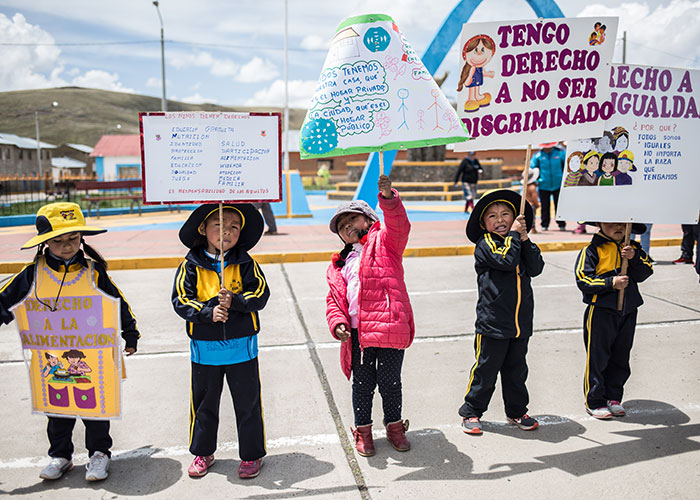
It’s a breach of international law to use hunger as a weapon by denying innocent people the essential means of survival.
Yet in many parts of the world, this is happening. That's why we're pressuring governments, including the UK, to respond when states cause avoidable human suffering and hunger.
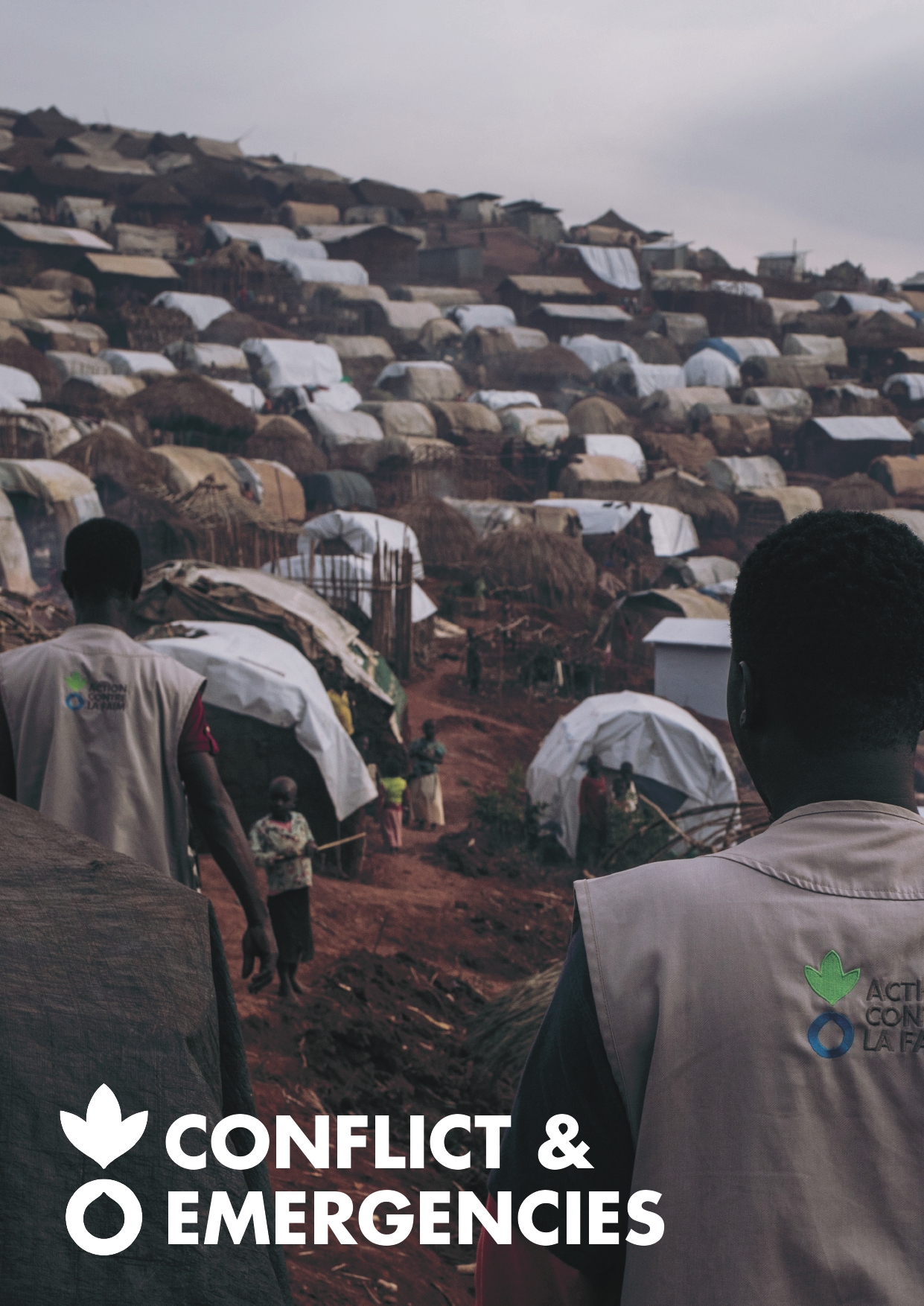
Quite simply, conflicts and emergencies cause life-threatening hunger. This proposition paper outlines how Action Against Hunger is working to tackle hunger in countries affected by conflict and emergencies.
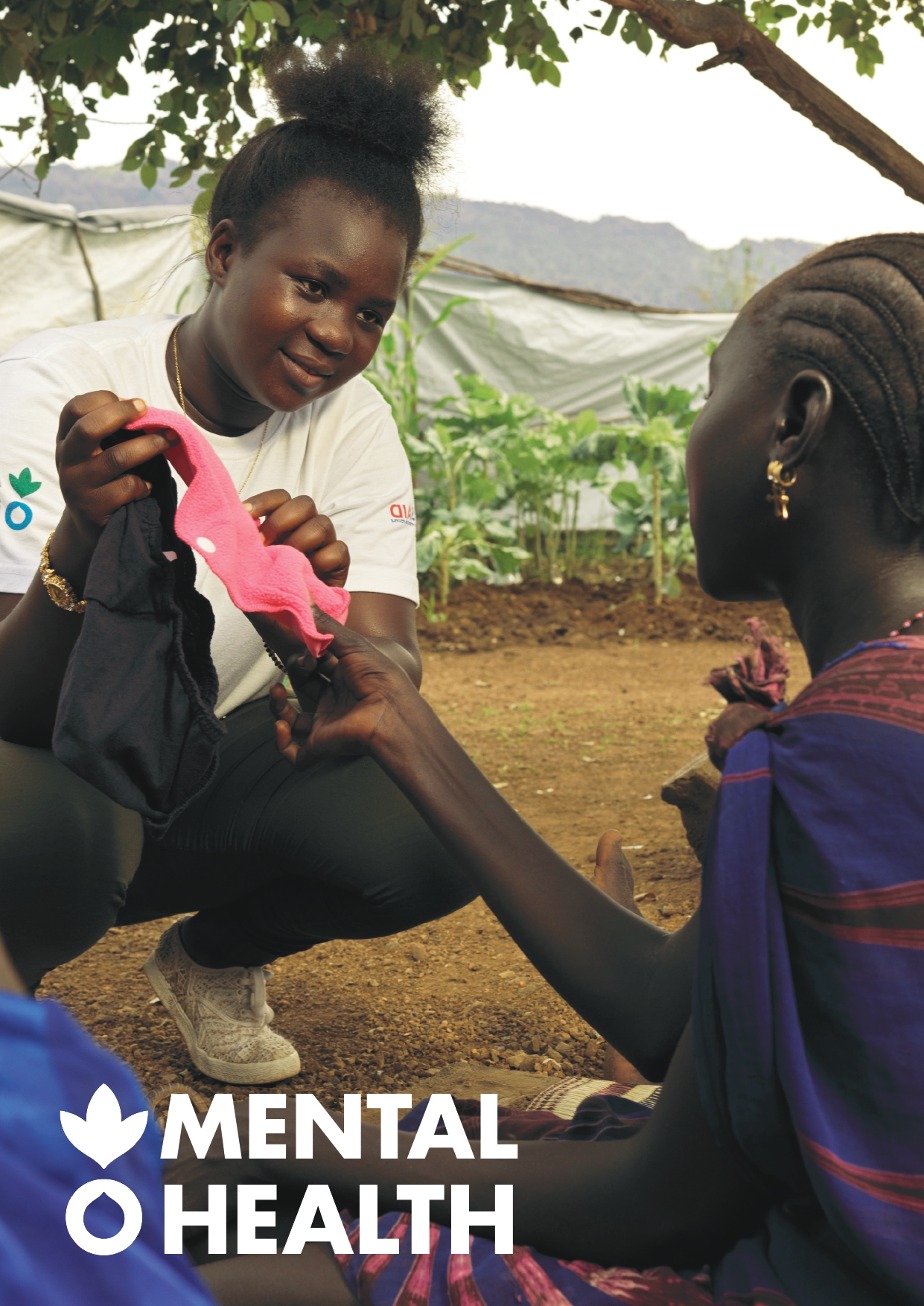
Hunger, conflict and natural disasters can have a huge impact on someone’s mental health. This proposition paper outlines the devastating effects of this and what Action Against Hunger is doing to combat it.